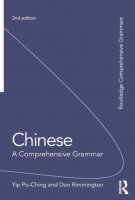You are using an out of date browser. It may not display this or other websites correctly.
You should upgrade or use an alternative browser.
You should upgrade or use an alternative browser.
Different pronouncing of 那个
- Thread starter Barry
- Start date
Shun
状元
Many reputable books write "nèige" instead of "nàge" in the demonstrative sense, for example this grammar book by Yip Po-Ching.


那一个 is indeed something slightly different, when you are faced with a choice and leaving out the noun you are referring to. (as in "Not this one, but that one") Perhaps "nèige" has had its use broadened to cases like "nèi ge rén".
AllSetLearning is by John Pasden, a respected language trainer who worked for ChinesePod a long time ago. He recommends also using 那个 as a filler in informal conversation, that's all. Personally, I would use it sparingly, like you wouldn't want to use "Umm" a lot.


那一个 is indeed something slightly different, when you are faced with a choice and leaving out the noun you are referring to. (as in "Not this one, but that one") Perhaps "nèige" has had its use broadened to cases like "nèi ge rén".
AllSetLearning is by John Pasden, a respected language trainer who worked for ChinesePod a long time ago. He recommends also using 那个 as a filler in informal conversation, that's all. Personally, I would use it sparingly, like you wouldn't want to use "Umm" a lot.
Last edited:
I heard that it's a local pronunciation mostly accepted and perhaps most used
Baidu Language has a page (in Chinese) about particularly this character. Check it out at: https://hanyu.baidu.com/zici/s?wd=那&query=那 字 读音&srcid=28236&from=kg0.
It indicates it's indeed the combination of "那" and "一".
It indicates it's indeed the combination of "那" and "一".
